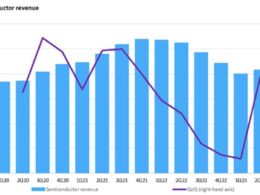At its inaugural developer conference in San Francisco on Monday, OpenAI made several major announcements that have the potential to transform the use of generative AI in enterprise businesses. The new offerings include GPT-4 Turbo, customizable versions of ChatGPT with GPT Builder, and the Assistants API. These advancements are aimed at making generative AI more accessible and powerful for businesses across various industries.
Empowering Businesses with AI Assistants
OpenAI’s introduction of GPT-4 Turbo and the Assistants API has significant implications for enterprise businesses. According to Sheldon Monteiro, chief product officer at Publicis Sapient, these advancements allow everyday people to create specialized assistants without requiring extensive technical expertise. This democratization of AI enables businesses with fewer resources to leverage the power of AI assistants, empowering them to perform specific roles and tasks.
“OpenAI has made tasks that would have previously required a more technical expertise far more accessible to everyday people to create assistants that can perform specific roles.”
– Sheldon Monteiro, Chief Product Officer at Publicis Sapient
Alex Beckman, founder and CEO at ON Platform, believes that these announcements will significantly enhance the engagement of enterprise businesses with generative AI. The new customizable versions of ChatGPT offer refined control over data inputs and outputs, resulting in more coherent and contextually relevant content. This advancement leverages recent world knowledge, making it suitable for a broader range of applications and use cases.
“The new offerings result in more coherent and contextually relevant content, suitable for a broader spectrum of applications and use cases, and leverages recent world knowledge as of April 2023.”
– Alex Beckman, Founder and CEO at ON Platform
Although the advancements are promising for usability and performance, there are still some limitations. According to Bob Brauer, founder and CEO of Interzoid, OpenAI’s user interfaces are not yet up to par, which may hinder the learning curve and adoption of enterprises. Despite this, Brauer believes that the potential productivity gains from utilizing AI assistants built with GPTs are incalculable.
Unlocking the Potential of Knowledge Repositories
Another significant impact of OpenAI’s new offerings is the ability to tap into vast repositories of knowledge within companies. OpenAI’s new GPTs, which combine instructions, extra knowledge, and various skills, can reference specific knowledge sources such as company handbooks or technical field guides. This enables the creation of chatbots that can provide instant access to organizational knowledge.
Bob Brauer emphasizes the transformative power of this innovation in saving time and improving efficiency within organizations. For instance, an entire 200-page handbook can be converted into a chatbot format accessible to all employees. This not only reduces inquiries for the human resources department but also helps new hires get up to speed rapidly.
“The potential productivity gains are incalculable… A human resources department could convert an entire 200-page handbook into a chatbot format, accessible to all employees, thus saving significant time spent on inquiries for both the department as well as every employee, especially new hires, getting them up to speed rapidly.”
– Bob Brauer, Founder and CEO of Interzoid
The longer context window of GPT-4 Turbo, equivalent to 300 pages, is seen as exciting by Sheldon Monteiro. It allows for improved context understanding, enhanced document summarization, cohesive long-form narratives, coherent multi-part conversations, and improved fine-tuning. This expanded context window is particularly useful for analyzing longer legacy code without the need for advanced modularization.
“The new longer context window enables us to use GPT to understand the entire program without having a developer try to break it up in advance.”
– Sheldon Monteiro, Chief Product Officer at Publicis Sapient
The launch of GPT-4 Turbo is considered a game-changer by Piyush Tripathi, lead engineer/tech lead at Square. The increased understanding capabilities, combined with the integration of world events knowledge until April 2023, enable businesses to make sense of large volumes of data. Tripathi highlights the impact this could have had on a previous project at Square, where the use of AI was limited due to the high data volume.
“If we’d had today’s OpenAI GPT-4 Turbo back then, it would have been a game changer… This would have made our summarizing work much easier, freeing us from a good chunk of manual work.”
– Piyush Tripathi, Lead Engineer/Tech Lead at Square
Despite the positive reception, there are voices of caution regarding OpenAI’s dev day announcements. Kjell Carlsson, head of data science strategy and evangelism for Domino Data Lab, believes that these developments do not adequately address the challenges of developing and operationalizing production-grade generative AI applications in enterprises. He argues that companies often find the OpenAI models and APIs lacking in terms of data security, control, scalability, reliability, and latency.
“These announcements do little, if anything, to significantly address these concerns. They make it even easier to get started – something which was never a meaningful problem with OpenAI’s offerings – without addressing the downstream challenges that are crucial for delivering value.”
– Kjell Carlsson, Head of Data Science Strategy and Evangelism for Domino Data Lab
Jon Hackett, VP technology at Huge, acknowledges the cautious approach of enterprise organizations towards generative AI. He highlights the need for companies to experiment quickly and safely with generative AI, and encourages them to seek the right mix of partners to guide them in this space.
“This is not a space where they can sit back and wait for the dust to settle… If companies are finding that they need assistance learning and cultivating this space within their organizations, they should seek the right mix of partners to help guide them along the path.”
– Jon Hackett, VP Technology at Huge










